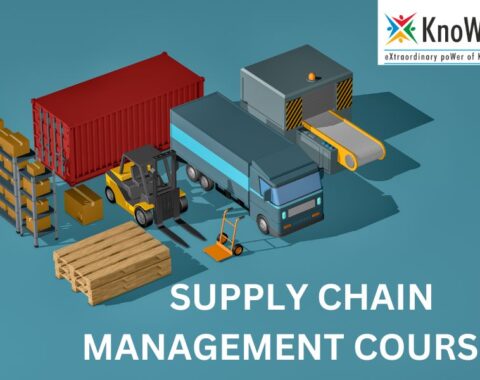Unveiling the ultimate clash of supply chain certifications: CPIM vs CSCP – discover which reigns supreme in the industry!
Table of Contents
- APICS Certification Overview
- CPIM Certification Analysis
- CSCP Certification Analysis
- Comparing CPIM and CSCP Certifications
- Conclusion
Are you a supply chain management (SCM) professional looking to enhance your career prospects? If so, earning a certification from the Association for Supply Chain Management (APICS) could be the perfect boost for your journey. With APICS offering multiple certifications tailored for SCM professionals, it’s important to carefully analyze the options to determine which one best aligns with your career goals. In this blog post, we will conduct a detailed analysis of the Certified in Production and Inventory Management (CPIM) and Certified Supply Chain Professional (CSCP) certifications, to help you make an informed decision.
APICS Certification Overview
Before diving into the battle between CPIM and CSCP, let’s first take a closer look at APICS and its role in the world of supply chain management. APICS is a globally recognized organization that promotes excellence in SCM by offering certifications, resources, and networking opportunities to professionals in the field. APICS certifications are highly regarded and provide a competitive edge in the job market.
CPIM Certification Analysis
The Certified in Production and Inventory Management – CPIM certification is designed for professionals who aim to become experts in production and inventory management. This certification is ideal for individuals who want to build a strong foundation in supply chain operations, including topics like demand management, material requirements planning, and capacity planning.
CPIM Certification Benefits
Comprehensive Knowledge and Skills
Through CPIM certification, candidates acquire a deep understanding of various aspects of supply chain management. This includes comprehensive knowledge in areas such as production planning, scheduling, cost management, and quality control. The acquired skills and knowledge enable professionals to optimize production and inventory management processes, leading to increased operational efficiency and cost savings.
Improved Career Opportunities
CPIM certification opens doors to a wide range of career opportunities in supply chain management. Having CPIM certification demonstrates to employers your dedication to professional development and increases your chances of landing a job in roles like production planner, inventory manager, supply chain analyst, or operations manager. Furthermore, CPIM-certified professionals often enjoy higher earning potential compared to their non-certified counterparts.
Industry Recognition and Credibility
CPIM is highly recognized and respected in the SCM industry. Achieving this certification identifies professionals as individuals with a strong understanding of production and inventory management principles. Organizations value CPIM certification due to the industry-focused knowledge it brings, and it confirms the credibility and expertise of the certified professionals.
CPIM Certification Exam Structure and Requirements
Exam Structure
The CPIM certification exam consists of five modules, each focusing on different aspects of supply chain management. The modules include Basics of Supply Chain Management, Master Planning of Resources, Detailed Scheduling and Planning, Execution and Control of Operations, and Strategic Management of Resources. The exam is computer-based and consists of multiple-choice questions.
Exam Preparation Resources
To prepare for the CPIM certification exam, candidates can utilize various resources available. APICS provides study materials, including textbooks, e-learning courses, and practice exams. In addition, there are numerous online platforms, study groups, and communities where candidates can find additional support and resources for exam preparation.
CSCP Certification Analysis
The Certified Supply Chain Professional (CSCP) certification is designed for professionals seeking a more holistic understanding of supply chain management. This certification equips candidates with knowledge and skills necessary to manage and improve end-to-end supply chain operations, including topics such as strategic planning, supplier relationship management, and logistics.
CSCP Certification Benefits
Comprehensive Supply Chain Knowledge
CSCP certification provides candidates with a deep understanding of diverse supply chain topics. From supply chain design and strategy to risk management and global operations, CSCP covers a wide range of subjects. This comprehensive knowledge enables professionals to make informed decisions and implement effective strategies across the entire supply chain, ensuring smooth and efficient operations.
Global Recognition and Opportunities
CSCP certification is internationally recognized and provides professionals with opportunities across various industries and geographies. Having a CSCP certification demonstrates your commitment to continuous improvement and positions you for roles like supply chain analyst, procurement manager, logistics coordinator, or supply chain consultant. The global recognition ensures that your skills are valued no matter where your career takes you.
Enhanced Professional Skills
CSCP certification equips professionals with practical skills that are in high demand in the industry. These include data analysis and interpretation, risk identification and mitigation, supplier relationship management, and supply chain optimization. By developing these skills, CSCP-certified professionals can effectively address challenges and contribute to their organizations’ success.
CSCP Certification Exam Structure and Requirements
Exam Structure
The CSCP certification exam comprises three modules: Supply Chain Design, Supply Chain Planning and Execution, and Supply Chain Improvement and Best Practices. The exam is computer-based and consists of multiple-choice questions and scenario-based questions.
Exam Preparation Resources
For CSCP certification exam preparation, APICS offers learning systems and study materials designed specifically for this certification. The learning system includes textbooks, case studies, and online resources to help candidates grasp the necessary concepts. Additionally, candidates can find sample exam questions and simulation tools to practice their knowledge and improve exam performance.
Comparing CPIM and CSCP Certifications
Now that we have examined both certifications in detail, let’s compare CPIM and CSCP to help you decide which one best suits your aspirations and career goals.
Target Audience and Specialization
CPIM certification is primarily aimed at professionals seeking specialization in production and inventory management, making it ideal for those interested in roles like production planner or inventory manager. On the other hand, CSCP certification targets professionals who wish to understand and manage the entire supply chain, making it suitable for individuals aspiring to roles like supply chain manager or logistics coordinator.
Knowledge Coverage and Depth
CPIM certification provides in-depth knowledge in production and inventory management, covering various aspects of these areas. CSCP certification, on the other hand, provides a broader understanding of supply chain management, covering topics ranging from strategic planning to supply chain improvement. The depth of knowledge varies between the two certifications, allowing candidates to choose based on their specific career interests.
Career Opportunities and Salary Potential
Both CPIM and CSCP certifications offer excellent career opportunities in supply chain management. CPIM certification opens doors to various positions in production planning, materials management, and operations, while CSCP certification opens up possibilities in supply chain design, strategy, and improvement. The salary potential for CPIM and CSCP-certified professionals differs based on market demand, industry, and the specific role, but generally, individuals holding these certifications enjoy higher earning potential compared to their non-certified counterparts.
Recommended Path for Professionals
Choosing between CPIM and CSCP certifications depends on your career goals, expertise, and personal preferences. If you have a passion for production and inventory management and aim to specialize in this area, CPIM may be the right choice for you. On the other hand, if you want to gain a holistic understanding of supply chain operations and aspire to manage end-to-end processes, CSCP might be the ideal certification to pursue. Consider your strengths, career aspirations, and the skills you would like to develop before making a decision.
Conclusion
When it comes to APICS certifications, both CPIM and CSCP have their distinctive advantages. CPIM certification hones your skills in production and inventory management, while CSCP certification equips you with a broader perspective of supply chain management. By conducting a thorough analysis of your career goals and aspirations, you can make an informed decision about which certification will best propel your supply chain management career. Whichever path you choose, earning an APICS certification is a valuable investment in your professional growth and can unlock exciting opportunities in the world of supply chain management.
To get these APICS at the best cost in the Industry, check our KnoWerX website.



